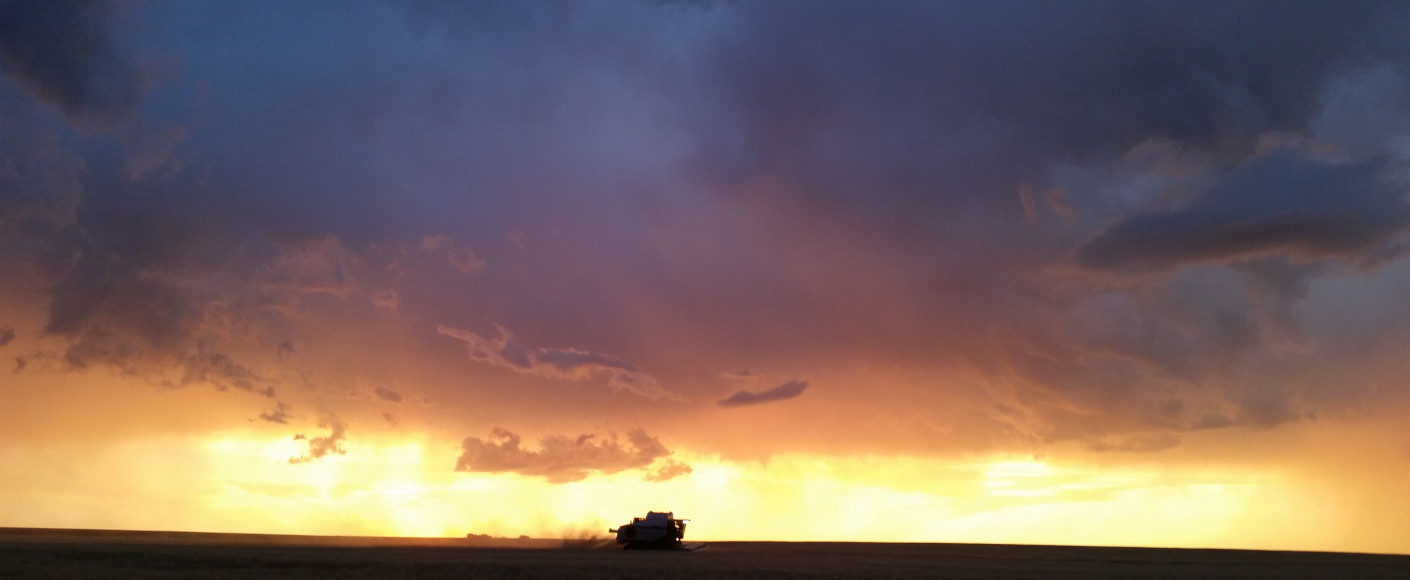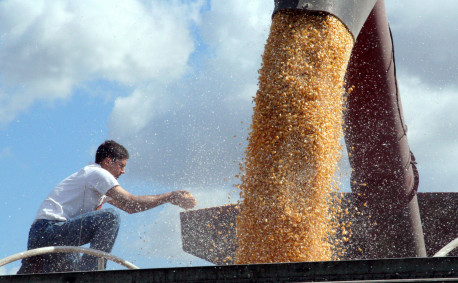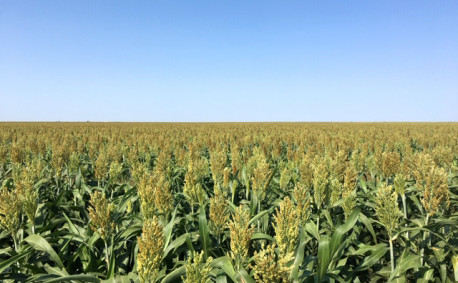Weathering the Storm
Kevin Holle has a mission: To enable present and future generations to live and prosper in Rawlins county.
“That’s what I live for,” he said. “I’ve always tried to plan for the future generations.”
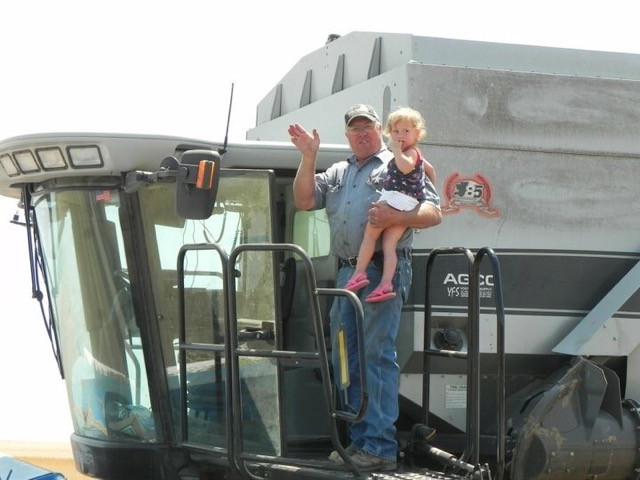 It’s more than a pretty sentiment. Everything Kevin does comes back to that mission, including managing his farm, which has been in his family since 1892. Kevin is the fourth generation to work the farm and his son Orrin is the fifth.
It’s more than a pretty sentiment. Everything Kevin does comes back to that mission, including managing his farm, which has been in his family since 1892. Kevin is the fourth generation to work the farm and his son Orrin is the fifth.
“Being a multigeneration farm, it’s almost like it’s in your blood,” Orrin said. “I’ve known I wanted to farm since I could eat dirt. It’s hard to describe the passion and the drive to farm. It’s ingrained in you at birth.”
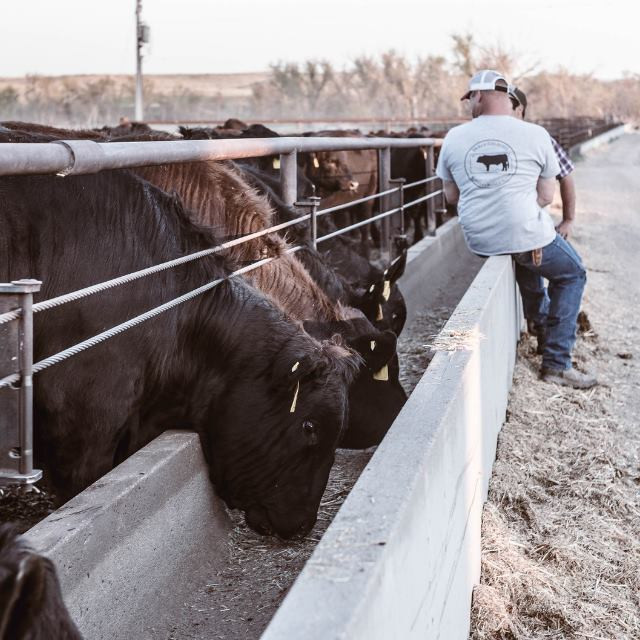 The Holles grow wheat, corn and sorghum, which they use for feed for their cow-calf operation. They also raise and sell bulls. And even though the demands of their livelihood mean they sometimes have to leave their warm beds to help deliver a calf in below-freezing temperatures at 4 a.m., they wouldn’t change it for the world.
The Holles grow wheat, corn and sorghum, which they use for feed for their cow-calf operation. They also raise and sell bulls. And even though the demands of their livelihood mean they sometimes have to leave their warm beds to help deliver a calf in below-freezing temperatures at 4 a.m., they wouldn’t change it for the world.
“You don’t just do it because you have to, you do it because you love to,” Orrin said.
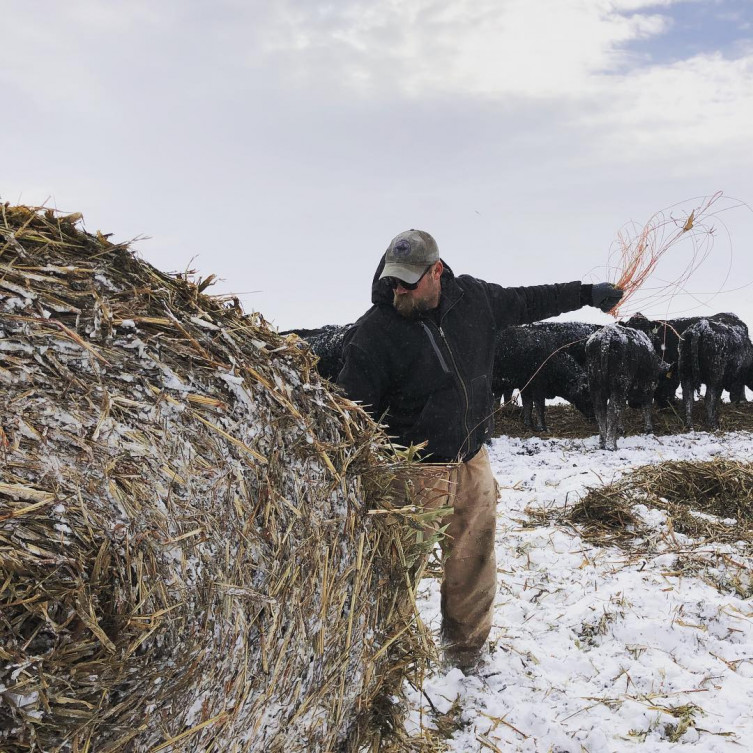 But lately, things have been tough. Not just for the Holles, but for farmers across the United States.
But lately, things have been tough. Not just for the Holles, but for farmers across the United States.
Several economic factors are affecting farmers, making today’s agricultural economy feel eerily similar to another tough time: the recession of the 1980s.
There are several parallels between the two eras. Both saw disruptions to foreign interests (the grain embargo against the Soviet Union in the 1980s and the trade war with China today), falling commodity prices and decreased land values. As before, the cost of farming hasn’t gone down, but income has. And farmers are caught in the middle.
The government has cast something of a lifeline. Just as in the 1980s, farmers today are receiving subsidy payments to help make ends meet under current economic conditions.
“Those payments are the only thing that’s keeping us in the black,” Kevin said.
Still, they’d prefer free trade over a subsidy any day.
“As producers, we would not like to have to rely on the government,” Orrin said. “We’re very independent people and we prefer to stay that way.”
So, how do they get by? For starters, they focus on what they can control.
“You learn to be very frugal. You try to make what you have last longer — make repairs instead of buying new — and learn to make do with what you have until things get better. And they will,” Kevin said.
After all, downturns are cyclical. With dips in the 1890s, 1930s, 1950s and 1980s, many farming families have seen this before.
“If you look at cycles, we were about due for a dip,” Kevin said. “You plan accordingly.”
“You plan for tomorrow and work hard for today,” Orrin added. “I think that’s what makes it easier to weather storms.”
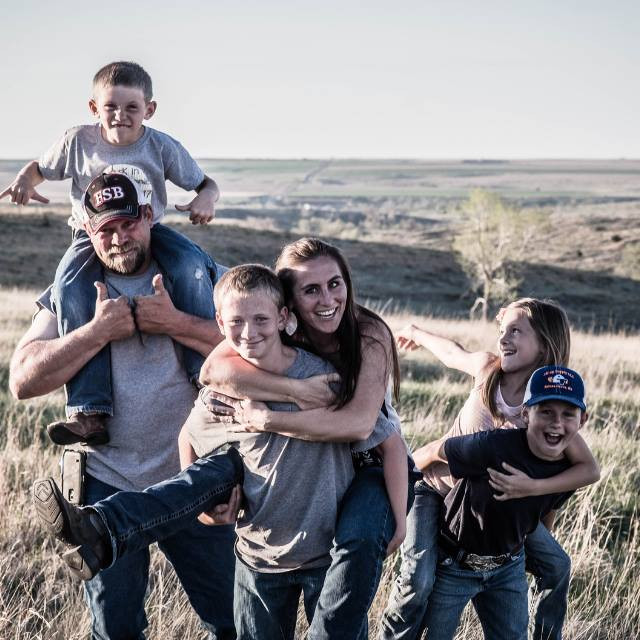 Family and faith also play important roles. Working together as a close-knit family, having the support of their spouses and putting their faith in God all help them focus on making it through.
Family and faith also play important roles. Working together as a close-knit family, having the support of their spouses and putting their faith in God all help them focus on making it through.
“We’re all firm believers in the good Lord,” Kevin said. “I never pray for rain. I just ask the Lord to let me do with what I’ve got.”
But they’re not out of the woods yet. Kevin said downturns usually last about a decade, which means they’ve still got a few more years to go.
Behind the headlines of trade wars and subsidies, families like the Holles are working hard to make their farms sustainable. It goes back to Kevin’s mission. Providing for future generations means taking care of the land.
“We are stewards of God’s creation,” Kevin said. “It’s not ours. It’s His. And we’re going to take care of it for Him.”
“We provide for others,” Orrin added. “We take care of what we have, of the environment, to provide safe, healthy, quality products for consumers here and around the world. That’s a pretty powerful job description.”
To get to know the Holles better, visit them online, on Facebook or follow them on Instagram @hollegelbvieh.
More About
What’s your favorite thing about Kansas?
- Kevin: “The people. Always has been. You go down the road and you wave at everybody. You dial the wrong number and still talk to the other person. The people – they’re trusting, they’re kind, they like to pick themselves up by their bootstraps and away we go.”
- Orrin: “There’s so much I could tell you on that one. We called it God’s country because that’s our only neighbor. What an unbelievable place to raise my family, especially with the multiple generations that have survived and thrived here. It’s hard to explain, but if you’ve ever seen a western Kansas sunset, that would best describe what’s here. The beauty of it and what we provide for others – it’s pretty phenomenal.”

